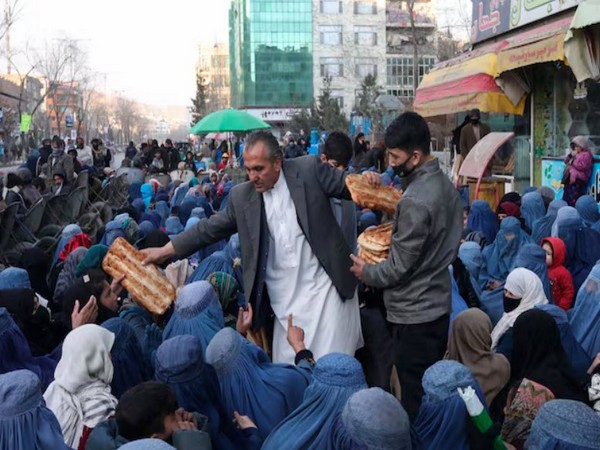Escalating Hunger in Afghanistan: A Call for Urgent Aid
Afghanistan faces an acute hunger crisis, worsened by economic woes and migrant returns. The World Food Programme urgently requires $540 million to support vulnerable populations. Experts highlight the need for infrastructure investment for long-term growth while acknowledging the current political challenges in implementing developmental projects.

- Country:
- Afghanistan
The hunger crisis in Afghanistan is rapidly escalating, with the World Food Programme (WFP) warning of a daily deterioration in conditions, as reported by Tolo News. The convergence of an economic crisis, consecutive droughts, and the forced return of thousands of Afghan migrants has severely strained the nation's limited resources, further endangering vulnerable groups such as women, children, and returnees from neighboring countries.
The latest report from this UN-affiliated organization emphasizes that women, children, and returnees from neighboring countries face the greatest risks in this crisis. According to Ziauddin Safi, WFP's communications officer, the agency urgently needs approximately $540 million to execute its programs aimed at assisting Afghanistan's most vulnerable over the coming six months.
"For the next six months, the World Food Programme in Afghanistan needs nearly 540 million US dollars to carry out its programs aimed at reaching the most vulnerable Afghans across the country," stated Safi. Some economic experts argue that long-term economic growth requires investment in infrastructure, as highlighted by Tolo News.
Mir Shaker Yaqubi, an economic affairs expert, believes aid is only effective when it fosters development and enhances welfare and economic comfort. "These aids are humanitarian and prevent a serious crisis, but they cannot in any way be considered as a fundamental solution to Afghanistan's economic problems," he elaborated. Another expert, Sayed Masood, contends that Afghanistan's crisis is more political than economic. "We have the facts and elements necessary to grow and organize the economy," he stated, emphasizing the political nature of the crisis due to current global and regional engagements hindering developmental projects.
The Ministry of Economy views the continued support from international relief organizations as vital for the country's current situation. Abdul Latif Nazari, Deputy Minister of Economy, remarked, "Humanitarian aid is a serious and essential need under the current circumstances, particularly with the return of migrants from neighboring countries. Therefore, our request is that international aid organizations and the global community continue their humanitarian and emergency assistance to the people of Afghanistan."
Previously, the United Nations had sought over two billion dollars to aid approximately 23 million people in Afghanistan. (ANI)
(With inputs from agencies.)
ALSO READ
UN Offices Raided in Yemen: Houthi Rebels Detain Staff
UN Under Siege: Houthis Raid Aid Agency Offices in Yemen
Railway Rescue: Special Trains from Jammu Aid Stranded Passengers
Quick-Thinking Doctor Revives Protester at Mumbai's Azad Maidan
Officials say Houthi authorities raided UN offices in Yemen's capital, Sanaa, and detained at least one staffer, reports AP.










